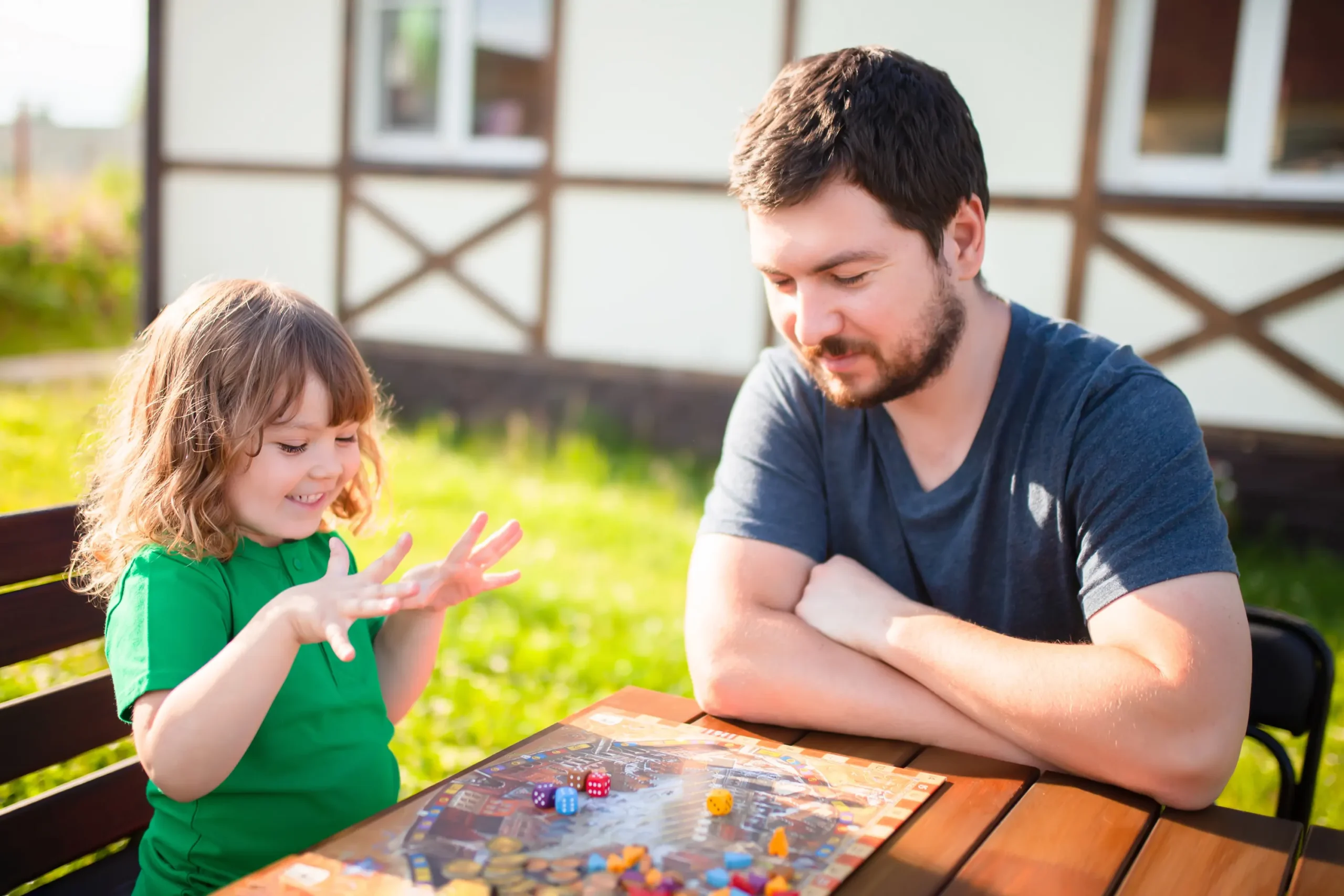
Dad Hobbies: Finding Time for Your Passions
Understanding the Value of Personal Time
The Importance of Me-Time
In the hustle of daily responsibilities, it’s easy to forget the significance of me-time. Yet, carving out moments for yourself is not just a luxury—it’s a necessity. Me-time is your chance to recharge, reflect, and indulge in activities that bring you joy and relaxation.
- Reflect on what activities make you feel most alive.
- Schedule regular intervals, even if it’s just a few minutes a day.
- Ensure this time is uninterrupted, allowing you to fully engage in your hobby.
Balancing Family and Personal Interests
Finding the right balance between family responsibilities and your own personal interests can be a challenging task. It’s essential to recognize that dedicating time to your hobbies is not selfish—it’s a crucial aspect of self-care that can make you a more fulfilled and energized parent.
- Communicate with your family about your interests and why they matter to you. This can help them understand your need for personal time.
- Establish mutual respect for each other’s passions within the family. It’s a two-way street.
- Look for opportunities to combine family time with your hobbies, such as weekend projects or activities that everyone can enjoy.
The Psychological Benefits of Pursuing Hobbies
Engaging in hobbies isn’t just a way to pass the time; it’s a vital component of maintaining your psychological well-being. When you immerse yourself in activities you love, you experience a sense of euphoria and fulfillment that can be hard to find elsewhere. This joy is not just fleeting; it contributes to a more resilient and positive mindset.
- Hobbies act as a stress-reliever, providing a much-needed break from the daily grind.
- They offer a sense of accomplishment, especially when you see your skills improve over time.
- Pursuing interests outside of work and family can enhance your sense of identity.
Moreover, hobbies can be a gateway to new social connections and communities. Sharing your passion with others can lead to meaningful friendships and a sense of belonging. So, don’t hesitate to carve out time for what makes you tick; your mind will thank you for it.
Identifying Your Passions
Rediscovering Old Interests
Life has a way of steering you away from the hobbies you once loved. But those old interests are a part of who you are, and revisiting them can reignite that spark of joy. Start by taking a trip down memory lane. Reflect on activities that used to bring you happiness and satisfaction.
- List out hobbies you enjoyed in the past.
- Consider what you loved about each activity.
- Think about the reasons you stopped.
Tip: Don’t be too hard on yourself if you’re not immediately as proficient as you once were. Skills can be rusty after a break, but they will improve with practice.
Once you’ve identified an old hobby, take small steps to reintroduce it into your life. It’s not about diving in headfirst; it’s about rekindling that old flame at a pace that suits your current lifestyle. Remember, it’s perfectly fine if your interests have evolved; this is about finding joy in what you do.
Exploring New Hobbies
Venturing into new hobbies can be as exhilarating as it is daunting. The key is to start with an open mind and a willingness to step outside your comfort zone. Begin by making a list of activities you’ve always been curious about but never had the chance to try. Whether it’s woodworking, painting, or learning a new language, the world is full of fascinating pursuits waiting to be explored.
- Consider local community classes or online tutorials to get started.
- Join forums or social media groups related to your new interest.
- Set aside a specific time each week to dedicate to learning and practicing.
Tip: Keep a hobby journal to reflect on your progress and jot down ideas. It’s a great way to track your journey and stay motivated when the novelty starts to wear off. After all, the joy of hobbies lies in the journey as much as the destination.
Remember, the goal isn’t to become an expert overnight but to enjoy the process of discovery. Embrace the initial challenges and celebrate small victories along the way. As you delve into new hobbies, you’ll not only gain new skills but also enhance your creativity and problem-solving abilities.
Evaluating Time and Commitment for Hobbies
Before diving headfirst into a new hobby, it’s crucial to realistically assess the time and commitment it requires. Start by asking yourself how many hours per week you can dedicate to this pursuit. Remember, consistency is key, so it’s better to commit a smaller, manageable amount of time regularly than to overextend yourself.
- Consider the learning curve and initial investment needed.
- Reflect on how this hobby fits into your current lifestyle and responsibilities.
- Be honest about your availability and willingness to stick with it long-term.
Tip: Don’t forget to factor in the time for preparation and clean-up, if applicable. These often overlooked aspects can affect your overall commitment.
Finally, think about the flexibility of the hobby. Can it be easily paused and resumed, or does it require continuous attention? Understanding these nuances will help you make an informed decision and set the stage for a fulfilling experience.
Strategies for Time Management
Prioritizing Your Day
In the whirlwind of daily responsibilities, finding time for hobbies can seem like a distant dream. However, by prioritizing your day, you can carve out moments for the activities that rejuvenate your spirit. Start by assessing your daily routine and identifying pockets of time that are often underutilized or wasted.
- Reflect on your current commitments and decide which are non-negotiable and which can be adjusted.
- Consider waking up a bit earlier or restructuring your evenings to accommodate your hobby.
Tip: Always plan your hobby time in advance. If it’s in your schedule, you’re more likely to commit to it.
Remember, it’s not about finding more time; it’s about making the most of the time you have. Even the busiest of days can accommodate a hobby if you’re willing to flexibly adapt your schedule. Your passions deserve a slot in your calendar, just like any important meeting or event.
Effective Planning and Scheduling
Mastering the art of planning and scheduling is crucial when it comes to fitting hobbies into your busy life. Start by assessing the week ahead and pinpointing slots of available time. It’s not just about finding time, but making the most of it.
- Identify your free hours during the week.
- Allocate specific times for your hobbies.
- Set reminders to keep you on track.
By setting realistic goals for each session, you’ll ensure that your hobby time is productive and satisfying. Whether it’s 15 minutes a day or an hour every weekend, commit to these moments and guard them jealously. Flexibility is important, but so is dedication to your personal growth and enjoyment.
Learning to Say No
Mastering the art of saying no is a crucial step in safeguarding your time for hobbies. It’s about setting boundaries and understanding that you can’t be everything to everyone. Start by evaluating requests against your personal priorities. If an activity doesn’t align with your goals or passions, it’s okay to decline.
- Assess the importance of each request.
- Consider if it interferes with your personal time.
- Politely decline activities that don’t serve your interests.
Tip: Practice saying no without feeling guilty. It’s a skill that gets easier with time and can lead to a more fulfilling life.
Remember, every ‘yes’ to something else is a ‘no’ to your hobbies and passions. It’s not about being selfish; it’s about being selective with your time.
Incorporating Hobbies into Family Life
Shared Interests: Bonding with Your Children
Finding common ground with your children can be as simple as sharing a hobby. It’s a fantastic way to spend quality time together while also passing on valuable skills and interests. Start by exploring activities that are age-appropriate and engaging for your kids. Whether it’s building model airplanes, gardening, or painting, the key is to find something that sparks enthusiasm in both of you.
- Consider these steps to foster a shared hobby experience:
- Introduce a variety of activities to see what resonates with your child.
- Set aside regular time each week for your hobby, making it a special part of your routine.
- Encourage open communication, allowing your child to express what they enjoy about the hobby.
Setting an Example for Lifelong Learning
As a dad, your actions speak volumes to your children. By actively engaging in your hobbies, you’re not just carving out time for yourself; you’re also setting a powerful example of lifelong learning. This demonstration of commitment and curiosity can inspire your kids to pursue their own interests with vigor.
- Show them that learning doesn’t end with school.
- Encourage questions and offer to explore answers together.
- Celebrate the milestones, both yours and theirs.
By integrating your passions into everyday life, you make it clear that personal growth is a priority. This lesson in balancing life’s responsibilities with the pursuit of knowledge is one of the greatest gifts you can give to your children, one that will serve them well throughout their lives.
Creating Family Traditions Around Hobbies
Establishing family traditions around hobbies can be a delightful way to strengthen bonds and create lasting memories. Start by choosing activities that are accessible and enjoyable for all family members. Whether it’s a weekly board game night, a monthly hiking trip, or an annual crafting day, the key is consistency and shared enjoyment.
- Choose a hobby that is age-appropriate and interesting for everyone.
- Set a regular time and date to ensure it becomes a part of your family routine.
- Celebrate milestones and achievements within the hobby to build a sense of accomplishment.
Tip: Keep it fun and flexible. The goal is to create positive associations, not to enforce another strict schedule.
Remember, the hobbies you share as a family don’t just pass the time; they weave the very fabric of your collective story. Over time, these shared experiences become the threads of nostalgia that your children, and perhaps even their children, will cherish. Embrace the opportunity to make your hobbies a legacy of joy and togetherness.
Maximizing Small Time Blocks
Utilizing Commute and Break Times
In the hustle of daily life, it’s easy to overlook the pockets of time that present themselves during your commute or on breaks. These moments can be golden opportunities to engage with your hobbies in bite-sized chunks. Whether you’re on a train, a bus, or in the backseat of a carpool, consider activities that are portable and can be paused and resumed easily.
- Listen to an audiobook related to your interest
- Sketch or jot down ideas in a notebook
- Practice language learning with flashcards or apps
Tip: Keep a small hobby kit with you, like a reading device, a compact set of drawing tools, or a language learning app installed on your phone, so you’re always prepared to make the most of these moments.
Remember, consistency is key. Regularly dedicating these small time blocks to your passions can lead to significant progress over time. And don’t underestimate the power of mindfulness during these sessions; even if they’re brief, being fully present can enhance the enjoyment and benefit of your hobby.
Short Sessions: Making Progress in Small Steps
You might think that hobbies require large blocks of uninterrupted time, but that’s not always the case. In fact, short sessions can be incredibly productive and satisfying. By breaking down your hobby into smaller, manageable tasks, you can make progress in the little pockets of time that appear throughout your day.
- Start by identifying tasks within your hobby that can be completed in 15 to 30 minutes.
- Use a timer to keep your sessions focused and efficient.
- Celebrate the small victories; each step forward is a piece of the larger puzzle.
Tip: Keep a notebook or a digital app handy to jot down ideas or track your progress during these short bursts of activity. This will help you pick up right where you left off.
Remember, consistency is key. Regularly engaging in your hobby, even for brief periods, can lead to significant improvements over time. Embrace the art of micro-hobbies—those that fit into your life without overwhelming it—and watch as they enrich your days with bursts of joy and creativity.
The Art of Micro-Hobbies
In the hustle of daily life, finding large blocks of time for hobbies can seem impossible. Enter the concept of micro-hobbies—small, engaging activities that fit into the crevices of your day. These are hobbies you can practice in as little as five to ten minutes, and they can be incredibly satisfying.
- Start by identifying moments in your day that are typically underutilized, like waiting for your coffee to brew or the last few minutes before bed.
- Choose activities that require minimal setup and cleanup, so you can dive right in.
- Keep materials for your micro-hobby easily accessible; a sketch pad on the coffee table or a language learning app on your phone, for example.
Tip: Always keep a micro-hobby in your back pocket for unexpected delays or downtime. It’s a great way to turn frustration into fulfillment.
The beauty of micro-hobbies is that they allow you to make progress in your interests without the need for extended periods of free time. Over days and weeks, these small increments add up to substantial skill development and personal satisfaction. Embrace the art of micro-hobbies, and watch how they transform idle moments into islands of joy and creativity.
Leveraging Technology and Resources
Online Communities and Support
In the digital age, finding support for your hobbies is easier than ever. Online communities offer a wealth of knowledge and camaraderie, accessible from the comfort of your home. Whether you’re a novice or an expert, there’s a group for everyone.
- Engage with forums and social media groups specific to your interest.
- Share your experiences and seek advice from fellow hobbyists.
- Participate in challenges and events to stay motivated and connected.
These platforms not only provide a space to learn and grow but also help in finding local enthusiasts. By leveraging these resources, you can deepen your understanding of your hobby and enrich your personal life.
Apps and Tools to Learn and Track Progress
In today’s digital age, a plethora of apps and tools are at your disposal to help you learn new skills and track your progress in your hobbies. These resources can be incredibly beneficial, offering structured lessons, progress tracking, and even community support. Start by exploring app stores and looking for highly-rated applications related to your hobby. Whether you’re into photography, gardening, or learning a new language, there’s likely an app designed to assist you.
- Download apps that offer tutorials and step-by-step guidance.
- Use tools that allow you to set goals and monitor your achievements.
- Engage with online communities through these platforms for motivation and advice.
Tip: Consistency is crucial when learning a new skill. Use these apps to carve out regular time slots in your day for practice, even if it’s just for a few minutes. Over time, these small sessions can lead to significant progress.
Remember, the key is to find apps that resonate with your learning style and keep you engaged. Some apps may offer gamified experiences, making learning fun and interactive, while others might provide a more traditional, structured approach. Experiment with different tools to find what works best for you.
Finding Local Clubs and Workshops
In your quest to weave your hobbies into the fabric of your daily life, don’t overlook the power of community. Local clubs and workshops offer a treasure trove of resources, from expert guidance to the camaraderie of fellow enthusiasts. Start by searching for clubs that align with your interests. Whether you’re into woodworking, painting, or coding, there’s likely a group of like-minded individuals nearby.
- Research local listings in community centers, libraries, or online platforms.
- Attend introductory sessions to gauge the fit for your interests and schedule.
- Engage with members to learn from their experiences and insights.
Tip: Many clubs and workshops offer free trial periods or open houses – take advantage of these to explore without commitment.
Remember, the goal is not just to find a place to practice your hobby, but to enrich your life with new friendships and learning opportunities. By integrating into a local club or workshop, you not only gain access to resources and knowledge but also embed your personal passions within a supportive network. This can be a game-changer in maintaining motivation and pushing the boundaries of your hobby.
Staying Motivated and Overcoming Slumps
Setting Achievable Goals
Embarking on a new hobby can be as thrilling as it is daunting. To maintain momentum and avoid feeling overwhelmed, it’s crucial to set achievable goals. These should be clear, manageable, and most importantly, realistic. Start by asking yourself what you want to accomplish in the short term—perhaps it’s learning the basics of a new language or completing a small home improvement project.
- Break down your goals into smaller, actionable steps.
- Celebrate each milestone, no matter how minor it may seem.
- Adjust your goals as needed to stay aligned with your capabilities and time constraints.
By setting goals that are within reach, you’ll not only enjoy the satisfaction of achievement but also fuel your desire to continue. This approach helps to build a positive feedback loop, where each success propels you towards the next challenge. And when life inevitably gets busy, having these targets will keep your hobby from falling by the wayside.
Tracking Your Hobby Journey
Keeping a record of your progress can be incredibly rewarding and insightful. As you delve deeper into your hobby, tracking your journey helps you see how far you’ve come, and it can be a source of motivation during times when your interest may begin to wane. Here are a few ways to document your hobby milestones:
- Maintain a journal or blog detailing your experiences and learnings.
- Use a spreadsheet or app to log hours spent and skills mastered.
- Take photos or videos to visually capture your progress.
Tip: Regularly review your log to remind yourself of the challenges you’ve overcome and the knowledge you’ve gained. This reflection can reignite your passion and encourage you to keep going.
Remember, the purpose of tracking isn’t to add pressure but to provide a personal narrative of your growth. Celebrate the small victories and use them as stepping stones towards larger goals. By doing so, you not only enhance your skills but also build a rich history of your personal development journey that you can look back on with pride.
Finding Inspiration When Interest Wanes
It’s natural for your enthusiasm in a hobby to ebb and flow over time. When you hit a slump, it’s crucial to reignite that initial spark that drew you to your passion in the first place. Here are a few strategies to help you find inspiration:
- Reflect on what attracted you to the hobby initially. Was it the creativity, the challenge, or perhaps the community?
- Change your routine or approach to the hobby to keep things fresh and exciting.
- Take a break if needed, but set a specific date for when you’ll revisit your interest.
Connect with others who share your interest. Sharing experiences and challenges can provide new insights and reignite your passion. Lastly, look for success stories or projects within your hobby community that can inspire you and remind you of what’s possible with dedication and time.
The Long-Term Rewards of Sticking with a Hobby
Developing Mastery and Confidence
As you delve deeper into your hobby, you’ll notice a shift in your abilities. The initial phase of learning may be fraught with challenges, but over time, you’ll develop a sense of mastery. This expertise doesn’t just improve your skills—it also boosts your confidence, both within the realm of your hobby and in your life as a whole.
- Recognize each milestone in your journey.
- Celebrate the small victories as well as the big ones.
- Reflect on how far you’ve come since you started.
The confidence gained from mastering a hobby can spill over into other areas of your life, enhancing your problem-solving skills and your ability to tackle new challenges. It’s a virtuous cycle: as your confidence grows, so does your willingness to push boundaries and explore new territories in your hobby and beyond.
The Joy of Sharing Your Passion with Others
When you share your hobby with friends, family, or even strangers, you’re not just passing on a skill or interest; you’re inviting them into a part of your world. The joy that comes from teaching your child to fish, showing a friend how to knit, or exchanging tips with fellow enthusiasts is immeasurable. It’s about the connections you make and the community you build.
- Inspiration: Witnessing someone else’s excitement can reignite your own passion when it begins to flicker.
- Encouragement: Positive feedback and shared experiences can propel you forward, especially during challenging times.
- Growth: Teaching others can deepen your own understanding and appreciation of your hobby.
How Hobbies Can Transform Your Life
Embracing a hobby can lead to profound changes in your life, often in ways you might not expect. The dedication to a passion outside of your daily responsibilities can foster a sense of accomplishment and personal growth. Over time, the skills and experiences gained from your hobby can spill over into other areas of your life, enhancing your problem-solving abilities and boosting your creativity.
- Self-discovery – Hobbies can help you understand your strengths and weaknesses, leading to greater self-awareness.
- Stress relief – Regular engagement in a hobby can serve as a stress buffer, providing a much-needed break from life’s pressures.
- Social connections – Shared interests can lead to new friendships and a sense of community.
Embracing Dad Hobbies: A Balanced Life
In conclusion, finding time for hobbies as a dad is not just about personal fulfillment—it’s about setting a positive example for our children and maintaining a healthy balance in life. Whether it’s early morning hours, lunch breaks, or the quiet of the night, every moment spent on a passion is a step towards a richer, more vibrant existence. Remember, it’s not the quantity of time, but the quality of engagement that truly counts. Embrace your hobbies, and watch as they bring a new dimension of joy to both you and your family.




